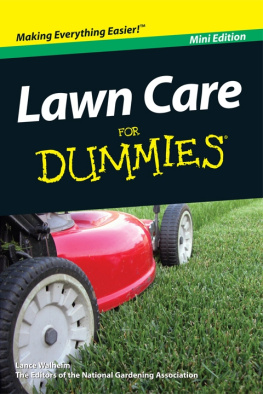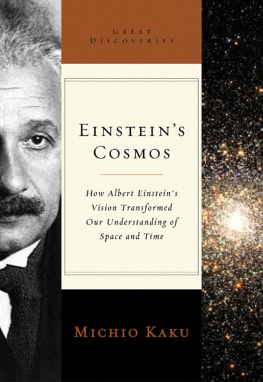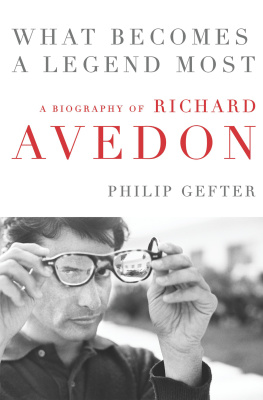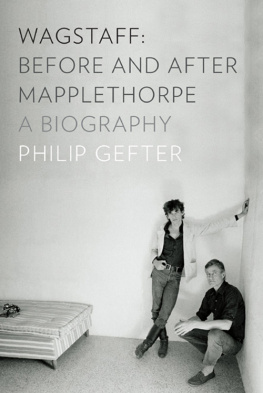Copyright 2014 by Amanda Gefter
All rights reserved.
Published in the United States by Bantam Books, an imprint of The Random House Publishing Group, a division of Random House LLC, a Penguin Random House Company, New York.
B ANTAM B OOKS and the H OUSE colophon are registered trademarks of Random House LLC.
The Aleph by Jorge Luis Borges. Copyright 1995 by Maria Kodama, used by permission of The Wylie Agency LLC.
From Collected Fictions by Jorge Luis Borges. Copyright Maria Kodama, 1998. Translation and notes copyright Penguin Putnam Inc., 1998. Reprinted by permission of Penguin Canada Books Inc.
The Aleph from Collected Fictions by Jorge Luis Borges, translated by Andrew Hurley, copyright 1998 by Maria Kodama; translation copyright 1998 by Penguin Putnam Inc. Used by permission of Viking Penguin, a division of Penguin Group (USA) LLC.
Excerpts from Station Island and The First Gloss from Opened Ground:
Selected Poems 19661996 by Seamus Heaney. Copyright 1998 by Seamus Heaney.
Reprinted by permission of Farrar, Straus and Giroux, LLC.
Excerpts from Station Island and The First Gloss from Opened Ground: Selected Poems 19661996 by Seamus Heaney Estate of Seamus Heaney and reprinted by permission of Faber and Faber Ltd.
LIBRARY OF CONGRESS CATALOGING-IN-PUBLICATION DATA
Gefter, Amanda.
Trespassing on Einsteins lawn : a father, a daughter, the meaning of nothing, and the beginning of everything / Amanda Gefter.
pages cm
Includes bibliographical references.
ISBN 978-0-345-53143-8 (hardback : acid-free paper)ISBN 978-0-345-53963-2
(ebooks) 1. PhysicsPhilosophy. 2. Beginning. 3. Quantum theory. 4. Gefter, Amanda
Anecdotes. I. Title.
QC6.G34 2014
530.01dc23
2013013874
www.bantamdell.com
Jacket design and illustration: David G. Stevenson, based on images Sashkin/Shutterstock (grass path) and NASA (starfield)
v3.1
We used to think that the world exists out there independent of us, we the observer safely hidden behind a one-foot thick slab of plate glass, not getting involved, only observing. However, weve concluded in the meantime that that isnt the way the world works. In fact we have to smash the glass, reach in.
JOHN ARCHIBALD WHEELER
Contents
A Note to the Reader
The book youre about to read contains cutting-edge physics packaged in a personal memoir, which spans the last seventeen years of my life. As such, it is inevitably subject to the failures of human memory, which I always hear neuroscientists claiming to be pathetically unreliable. Nevertheless, in reconstructing scenes and dialogue, I have done my best to keep everything as accurate as possibleby consulting my own notes and photographs, talking with others who were on the scene, and, most important, asking my mother, who somehow manages to remember my life in far greater detail than I ever do. My conversations with physicists have all been transcribed directly from recordings, though edited for ease of reading and length. In some cases, Ive combined multiple interviews with the same physicist into a single conversation. When necessary, Ive adjusted the chronology of scenes to allow me to present the physics in a logical, meaningful way. Ive spent seventeen years wandering a tortuous, circuitous road trying to piece together a deep understanding of physics and the nature of reality; I figured Id try to relay what Ive learned in a slightly more straightforward book. Of course, I could have opted for perfect accuracy, but then thered be far too many scenes of me watching bad TV, quietly reading, or sleeping for hours on end. Plus, it would take me way more than seventeen years to write and it would take you way more than seventeen years to read, and I think by the end wed all agree it probably wasnt the best option. The logician Kurt Gdel proved that any form of self-reference is plagued by uncertainty, and I cant think of a better example than a memoir. Still, I have worked to produce a book that rings deeply true. We are in search of ultimate reality, after all.
AG
1
Crashing the Ultimate Reality Party
Its hard to know where to begin. What even counts as a beginning? I could say my story begins in a Chinese restaurant, circa 1995, when my father asked me a question about nothing. More likely it begins circa 14 billion years ago, when the so-called universe was allegedly born, broiling and thick with existence. Then again, Ive come to suspect that that story is only beginning right now. I realize how weird that must sound. Trust me, it gets weirder.
As for my story, it probably begins the day I lied and said I was a journalist. Not that I knew at the time that it was a beginning. Theres no way I could have known how far the whole thing would go. That Id soon be hanging out with the worlds most brilliant physicists. That Id turn a minor deception into an entire career. I could never have guessed that Id be getting emails from Stephen Hawking, lunching with Nobel laureates, or stalking a man in a Panama hat. I never once imagined driving through the desert with my father to Los Alamos, or poring over fragile manuscripts in search of clues to a cosmic riddle. If I had stopped to think about it, I couldnt have foreseen that one little lie, one impulsive decision to go somewhere I didnt belong, would launch an all-consuming hunt for ultimate reality.
But the strangest part is that I no longer believe any of these things is the beginning. Because after everything thats happened, after everything Ive learned, Ive come to see that this story begins with you. With you opening a book, hearing the soft crack of a spine, the whisper of a turning page. Dont get me wrongId love to say that this is my story. My universe. My book. But after everything Ive been through, Im pretty certain that its yours.
I was working in a magazine office when the lie was born. That was the idea, anywayworking in an office. In reality I was stuffing envelopes in the dusty one-bedroom apartment of a guy named Rick. The idea was that I worked for Manhattan magazine. The reality was that I worked for Manhattan Bride.
Manhattan covered New Yorks socialite charity-event circuit, but the magazine was bordering on extinction when I first took the job, and it was laid to rest shortly after. Ricks newly launched glossy bridal magazine, on the other hand, was alive and well. So even though I spent most days fielding calls from florists and cake decorators, and one long afternoon scowling in an obscenely puffy wedding gown, I continued to tell people that I worked for Manhattan magazine. It sounded better.
I was there in the office, wondering if I could use the rubber-band ball to fling myself back to Brooklyn, when I spotted the article in The New York Times. John Archibald Wheeler, leading light of theoretical physics, poet laureate of existence, had just turned ninety and physicists from around the world were heading to Princeton to celebrate. This weekend, the article read, the Really Big Questions that Dr. Wheeler loves will be on the table when prominent scientists gather at a conference center here in his honor for a symposium modestly titled Science and Ultimate Reality.
As it happened, I was burning to ask Wheeler one particular Really Big Question. If only I were a prominent scientist. I slumped back in my seat and gazed absentmindedly at an old Manhattan cover hanging on the wall.
And then it hit me.
I waited until Rick left to get lunch, then picked up the phone, called the people in charge of publicity for the conference, and told them, in the most professional voice I could muster, that I was a journalist calling from








